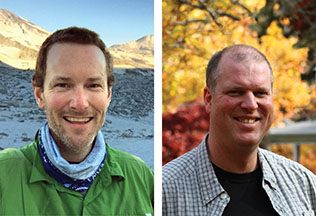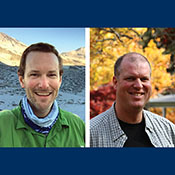Mapping Possibilities for U-M’s Energy Independence
ASSOCIATE PROFESSOR ADAM SIMON ET AL. (Earth and Environmental Sciences, LSA) won the Provost's Teaching Innovation Prize in 2017 for their project, Teaching Early Learners “How Doctors Think†in the Chief Concern Course.

EARTH 380 “Mineral Resources, Economics, and the Environment†empowers students to understand the technical, social, and financial complexities of radically transforming the electricity infrastructure of our campus. Following a flipped classroom format, students are introduced to a particular energy-related concept and given a problem to investigate each week, using the entire Ann Arbor campus as their primary site of inquiry. The problems are scaffolded such that students have the tools they need and produce data independently. Students submit their results via Canvas prior to a weekly discussion section, enabling instructors to aggregate and evaluate the results for similarities and differences, and highlight areas of consensus and disagreement.
The culminating project collects all the research gathered in the earlier weeks of the semester. Each student develops a web-based story map to communicate her/his findings to the class and, later, a community forum. The universal outcome is that students recognize that their own solutions are often similar to those of their colleagues, no matter their academic home. Moderated discussion, blended with think-pair-share activities, allows their solutions to become the starting point for real conversations inside and outside the classroom.
Student Comments
“I was able to better understand the complexity of energy production and usage in a broader context, such as by identifying the geographic origins of necessary materials and assessing the actual environmental impact of both fossil and renewable sources.â€
“I was able to perceive energy issues at U-M from the viewpoints of various stakeholders involved and further apply such ideas on larger scales, such as on national and global levels.â€
“Throughout the semester, students worked on a project centering on one question: Can the University of Michigan acquire 100% of our power from renewable energy?â€
“I can say with confidence that this is the only project that I have completed at this university that taught me facts about the energy sector, theoretical problems within it, and how to develop practical solutions for a complex question.â€
“Rather than using discussion sections in the traditional manner - to review material, have discussions, take quizzes, or answer questions - students conduct projects to directly assess the feasibility of transitioning our campus from fossil fuel based to renewable energy sources.â€

